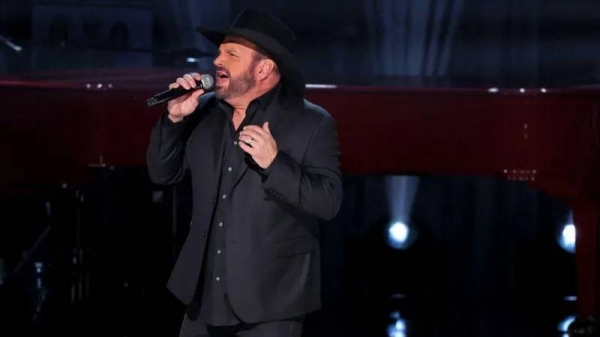Country music superstar Garth Brooks is facing a lawsuit accusing him of sexual assault and battery in California state court. The accuser, known as “Jane Roe”, worked as a hairstylist and makeup artist for Brooks, alleging that he raped her, groped her, and made sexually explicit comments during her employment. Brooks has denied the allegations, calling them “extortion and defamation”. The lawsuit includes details of an alleged rape in a hotel suite during a Grammy tribute, as well as other instances of sexual advances. Brooks also allegedly proposed a threesome involving his wife, Trisha Yearwood.
The legal battle between Brooks and Jane Roe began with a lawsuit filed by Brooks in Mississippi federal court. Brooks claimed that the accusations were made after he refused Roe’s request for salaried employment and medical benefits. His lawsuit strongly denied the allegations, stating that they were designed to damage his reputation, family, and career. Jane Roe’s lawyers have now filed a 27-page legal action in Los Angeles Superior Court, accusing Brooks of sexual assault, battery, exposing himself, making explicit comments, and sending inappropriate text messages.
Garth Brooks is a well-known figure in the music industry, with two Grammy awards and over 162 million albums sold. He is also recognized for his philanthropic work, supporting organizations that benefit children and provide relief after natural disasters. Despite the allegations, Brooks remains committed to his music career, stating that he trusts the legal system and is determined to continue his charitable efforts. The lawsuit against Brooks has drawn attention to the issue of sexual assault and harassment in the entertainment industry, sparking discussions about accountability and justice.
The allegations against Garth Brooks have raised concerns about the treatment of women in the music industry and the prevalence of sexual misconduct. The #MeToo movement has highlighted the need for greater accountability and support for victims of harassment and assault. The lawsuit against Brooks is a reminder of the power dynamics at play in the entertainment world and the importance of speaking out against abuse. The case serves as a cautionary tale for artists and industry professionals, emphasizing the need for ethical behavior and respect for others.
As the legal battle between Garth Brooks and Jane Roe unfolds, the music industry faces important questions about accountability and justice. The lawsuit highlights the challenges faced by victims of sexual assault and the importance of creating safe and supportive environments for those who come forward. Brooks’ denial of the allegations underscores the complexities of addressing claims of misconduct and the impact on his reputation and career. Moving forward, the case against Brooks serves as a reminder of the ongoing fight against harassment and abuse, and the need for a more equitable and inclusive industry.
In conclusion, the lawsuit against Garth Brooks sheds light on the issue of sexual assault and harassment in the music industry, prompting discussions about accountability, justice, and the treatment of women. As the legal battle continues, the case serves as a reminder of the importance of speaking out against abuse and supporting victims of misconduct. The accusations against Brooks have sparked debates about power dynamics in the entertainment world and the need for ethical behavior. Despite the allegations, Brooks remains committed to his music career and philanthropic work, emphasizing the importance of continuing his positive contributions to society. The outcome of the lawsuit against Brooks will have significant implications for the music industry and the broader movement towards creating a safer and more inclusive environment for all individuals.










